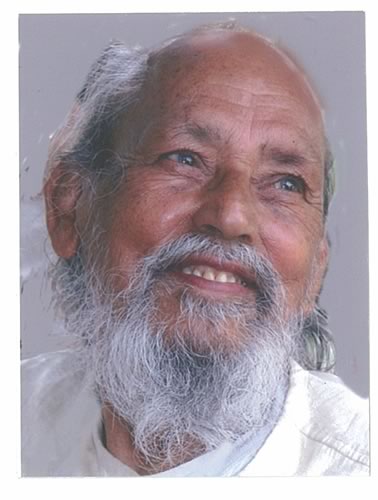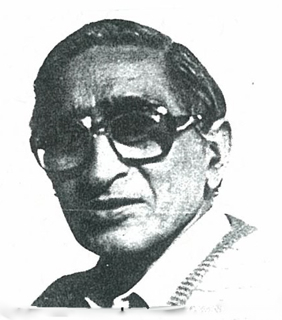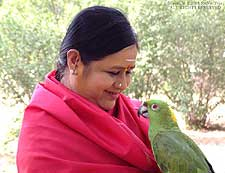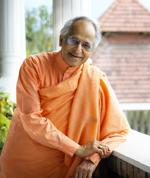The Rg Veda
Is the oldest of the four Vedas, the most sacred texts of ancient India.
The following quotes are excerpted from the hymn to herbs found in the tenth mandala of the Rg Veda (with contemporary translation by Debroy and Debroy, pp. 97-101). The tenth mandala is considered to have been written quite a bit later than the other sections of the Rg Veda. This is an important passage which shows developed knowledge of many medicinal plants, the existence of physicians, the idea of disease going into different tissues of the body, the use of plants to treat diseases of animals as well as humans, and the Ayurvedic practice of combining more than one herb together to make a medicine.
Many are the forms that herbs take. They are full of juices. The gods themselves give birth to herbs in the three different periods of time. ….
Oh, herbs! You are like our mothers. You are to be found in a thousand places. You have a thousand saplings. Many are the acts you are capable of performing. May you cure us of all ailments.
Oh, herbs, may you thrive and have flowers. May you look upon patients with favor. The diseases are like enemies, may you invade them like horses attacking foes. You free us from illnesses. You deliver us from disease…
Like kings coming together to do battle, various herbs come together and mingle. The physician is a learned person. He is well-versed in the treatment of diseases and ailments…
Oh, herbs! The disease has entered the limbs and bones of the patient. May the herbs enter his body and purge all disease…
The juice of one herb is mixed with that of a second. The juice of the second is mixed with that of a third. May all the herbs of the world be united in listening to my prayers. May I be protected.
There are herbs that have fruit, and there are those that do not. There are herbs that have flowers, and there are those that do not. All these herbs were created by Brihaspati. May all herbs free us from illness…
The herbs are to be found on earth and Soma is their chief. Brihaspati created the herbs so that they may cure patients.
Oh Herbs! The one who digs you out of the ground, may he not be destroyed. I dig you out from the ground for the sake of the patient. May the patient not be destroyed. May all bipeds and quadrupeds be free of disease. May our sons and our animals be free from disease.
The herbs that are far away will listen to these prayers. The plants that are near will also listen to these prayers. All the herbs will combine to make the diseased body healthy again…
Debroy, Bibek, and Dupavali Debroy, 1994, the Holy Vedas, BR Publishing Corp.
The Katha Upanishad
Both the individual self and the Universal Self have entered into the cave of the heart, the abode of the Most High, but the knowers of Brahman and the householders who perform the fire sacrifices see a difference between [those two] as between sunshine and shadow.
The Self, whose symbol is Om, is the omniscient Lord. He is not born. He does not die.
He is neither cause nor effect. The Ancient One is unborn, eternal, imperishable; though the body be destroyed, he is not killed.
If the slayer thinks that he slays, if the slain thinks that he is slain, neither of them knows the truth. The Self slays not, nor is he slain.
Smaller than the smallest, greater than the greatest, this Self forever dwells within the hearts of all. When a man is free from desire, his mind and senses purified, he beholds the glory of the Self and is without sorrow.
The Self is not known through study of the scriptures, nor through subtlety of the intellect, nor through much learning. But by him who longs for him is he known.
By learning a man cannot know him if { he does not desist from evil, if he does not control the senses, if he does not quiet his mind, if he does not practice meditation.}
Excerpts from The Upanishads, Breath of the Eternal,
Swami Prabhavananda and Frederick Manchester, trans.
To the top of page
|





